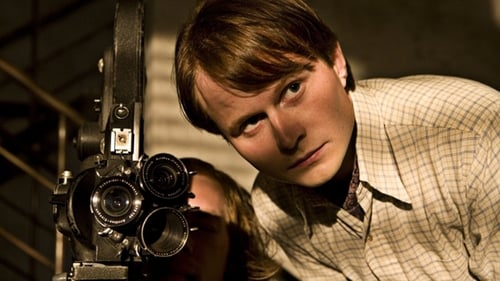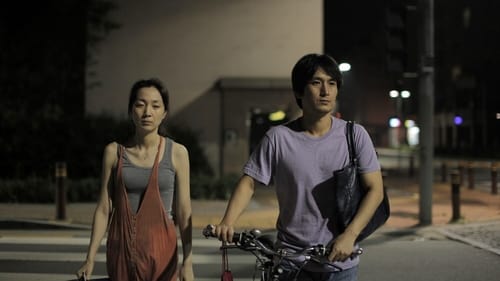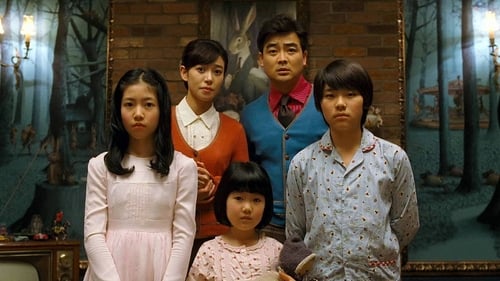The Existence (2007)
Gênero :
Runtime : 1H 12M
Director : Marcin Koszałka
Sinopse
An aging Polish thesp looks death in the eye as he prepares for the inevitable in the absorbing, well-mounted docu "The Existence." While thesp Jerzy Nowak ("Schlindler's List," "Promised Land") addresses a number of concerns about the end of his life, the film explores the question of what will happen to his body after he donates it to medical science. Subject is handled respectfully and tastefully, balancing the clinical with the personal. Pic will thrive on the fest circuit and can expect a long life via Euro pubcaster outlets.
(c) Variety

Erik Nietzsche is an intelligent but in many ways inexperienced shy young man who is convinced that he wants to be a film director. In the late 1970s, Erik is accepted by the Danish National Film School where he enters a world of angry and unhelpful tutors, weird fellow students and unwritten rules. In this both exhilarating and angst-provoking period for him, Erik feels increasingly like a foreigner in the film industry. Frequently, he is merely an observer of the absurdities that surround him. He encounters trade union disputes, falls in love and experiences self-assured empowered women who refuse to make a commitment. The film is a drama full of comedy - a sharp portrait of a conceited but entertaining world of film which we suspect our dogged young director will eventually conquer with his vision.

Thirty year-old Azul looses her husband and son in a violent car crash. She is the sole survivor of the tragedy. Burnded and broken, she escapes from the city, and seeks refuge in a small hut on a deserted beach, in an attempt to rebuild herself and to forget. But it's impossible. She can't swallow anything. In her weakness, she starts seeing mirages, and begins to sink slowly into dementia. Her sister tries to rescue her, but in vain. A wandering dog follows her about, her last travel companion... Her encounter with a fisherman suddendly triggers a flicker of hope. Azul wants to believe in a miracle : to replace one child with another, one life with another...

Theatre 1 (Observational Film Series #3) is a feature length documentary, which closely depicts the world of Oriza Hirata, Japan's leading playwright and director, and his theatrical company, Seinendan. By depicting them, the film leads the audience to revisit fundamental but timely questions: What is theatre? Why do human beings act?

14-year-old Honggui is forced to live with her uncle and aunt in the countryside. She is not wanted by them, nor was she wanted by her parents, who apparently intended to farm her out to family for two years so they could work in the city. Years pass. When she tries to make contact, her real mother is too busy to take her call.

A thirtysomething son struggles with his parents and with love.

In October 2010, three American friends decided to play a prank on a girl and to share that via a live stream on their website, pranxxxter.com. But the prank got completely out of hand, with these confrontational recordings as evidence.
The plan was as follows: one of them would have a so-called romantic dinner with a girl in a villa filled with cameras. Strange twists in the plot were planned in advance for the evening, such as snacks of dog food. The lady would be tormented to the utmost and her date would have to prevent her running away.
The sidekicks checked all this through their camera system in the cellar and provided a commentary on the evening. These virtually undamaged images, partly shot with a hand-held camera and intercepted by the police as evidence, show virtually in real time how an apparently innocent joke can get completely out of hand. Don’t try this at home, kids.

Facing financial uncertainty and entering middle age, a married couple in their early thirties contemplate whether it's the right time to have their first baby.

Zoé decides to hit the road to approach a writer she admires (played by the French director Jacques Doillon). She believes that a road trip might give purpose to her life. On the way, she meets Adrien, a young comedian. Intrigued by her elusive personality, he decides to follow her.

Roya is a resourceful young woman who is juggling with loans to pay back a large debt. With her gift of the gab and her determination to fight her way out, she finds herself at the top of a small ponzi scheme that promises to be lucrative, but very soon the mechanism seizes up and a sense of control gives way to anxiety. With a sense of narrative sequencing akin to his senior, Jafar Panahi (The Circle, Blood and Gold), Mahmoud Ghaffari portrays a protagonist hemmed in by a double straightjacket, one where social and gender inequality are inextricably intertwined. His character is neither a heroine nor the passive victim of a crushing system but warrior-like yet evanescent. Arguably, this determination, which draws its energy from despair, can be seen as an obligation incumbent on any filmmaker practising their art in today’s Iran: the obligation to fight up to the point where one’s very absence leaves a void full of meaning.

Oriza Hirata is Japan's leading playwright and director, who runs his own theatrical company, Seinendan. Theatre 2 (Observational Film Series #4) examines the dynamic relationship between theatre and the society through depicting Hirata's activities. In order for his art and his not-so-commercial company to survive this highly capitalistic modern society, what kind of strategy does Hirata have and practice?

The masterful new documentary from Wang Bing is an intimate, observational portrait of a peasant family who eke out a humble existence in a small village set against the stunning mountain landscapes of China's Yunnan province.

Charu and her friends share a rented apartment in a sky-rise in Mumbai. All in their mid-twenties, and each hailing from different parts of the country, they have come here to make this bustling metro their home. One day a labourer comes to paint a soiled wall at her house. Irritated that her flat-mate did not inform her, she asks the man to hurry up. A few minutes later, she finds him unconscious on the floor...

This is not an easy mystery to solve in all its subtleties. In the last paragraph, I give my take on the characters. I won't give away the principal spoiler. Still, if you want to exercise your Sherlock skills to the fullest, skip that last paragraph. I'll warn you. A man leaves prison. He has been paroled. The best he can do at first is stay at a shelter for poor people and look for work. In the meantime he tries to reconnect with people he knows and to avoid the attention of several shady individuals that know him. That's the layout. The mystery elements arise from the fact that he is rejected by a few, pursued by a duo of suspicious looking men, and approached by a bunch of unsavory roughnecks that know him well. Why the rejection? Why the persecution? What is the gang about? The film is parsimonious about handing out hints and clues that we need to answer those questions. The best we can do is work out hypotheses and see if they pan out at the end.

Faro is a real goddess of a real tribe (the Bamana) in the West African country of Mali. In a landlocked country like Mali, covered in part by the Sahara Desert, water is a resource that can never be taken for granted. The Bamana village in Faro: Goddess of the Waters not only sits on a riverbank, but also depends for much of its food on fish from the river. Faro is the dominant character in this film, the unseen force for which all action takes place. (c) Ferdy on Films [Marilyn Ferdinand]

A grandmother dies and leaves behind hours of secret film and audio recordings as well as an envelope with the words “Must read after my death,” which reveal a dark history for her family to discover.

A surreal drama about an alienated family set in Koreatown, Los Angeles and Rishikesh, India.

Jakub and Vladimir, two brothers in their late teens, join in the Cossack army to flee poverty. Elias and Roman, two other brothers, on their own as well, steal horses to survive... When fate brings them together, the encounter proves lethal. Vladimir gets killed. Jakub now burning with anger, is obsessed with revenge. A wild track begins, no one will be left unharmed...

Saara is a middle-aged doctor who one day finds out that her architect-husband Leo is having an affair with a younger woman, Tuuli. Instead of revealing her true identity, Saara pretends to be someone else and makes friends with Tuuli. At the same time she is planning the best way to revenge her husband and his lover

When Eun-soo gets lost in a country road, he meets a mysterious girl and is led to her fairytale ike house in the middle of the forest. There, Eun-soo is trapped with the girl and her siblings who never age. Eun-soo finally discovers a way out which is written on a fairy tale book. But the book tells a story of none other than himself!

A teenager searches for meaningful connections with others while trying to build a steady relationship with her transsexual father and a stepdad who posts everything about their family online.








